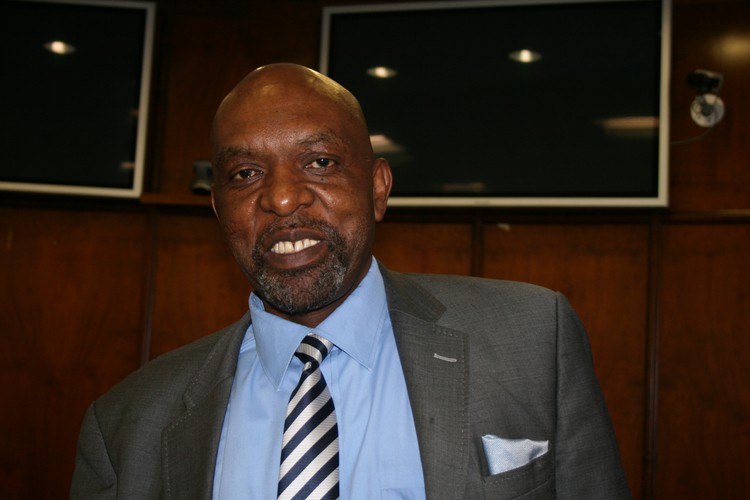Parliament committee on party funding begins its work
First meeting discusses whether ruling party is entitled to make its own representation
The much-awaited Ad Hoc Committee on the Funding of Political Parties got down to business yesterday by releasing the names of 16 public organisations that have made written submissions to the Committee. The only political parties to send submissions were the ANC and AZAPO.
This suggests the pending deliberations of the committee promise to be an exercise in real public participation, with inputs from diverse civil society groupings, including an organisation called COOL Youth Church and the Forum of Cape Flats Civics. The other representations came from bodies that have long campaigned to open up private party funding to scrutiny.
Speaking to GroundUp after the meeting, committee chairperson Vincent Smith said, “political party funding will determine whether those that have money will influence policy or whether you and I, as the ordinary citizen, will be [able to] influence policy. That is why it is important that we regulate private donors.”
In a statement, the committee expressed “a deep appreciation to all civil society organisations and fellow South Africans who responded to the invitation” to comment on the Public Funding of Represented Political Parties (PFRPP) Act, No 103 of 1997.
The committee decided to invite all those who made written submissions to present their arguments in Parliament. It also settled on 15 and 16 August 2017 as the date for the oral public representations.
“Whatever comes out of here will have a bearing on South Africa for a very, very long time,” Smith told committee members.
The committee will consider legislative amendments and new regulations to allow for public scrutiny of political party funding. For the first time parties may have to make the names of their donors public, declare where they get their funds from and release how much they receive from respective donors. This follows years of civil society campaigning for sources of private party funding to be made public
Smith told the Committee its mandate to advance legislation that regulates political party funding would determine who really influences political parties and its policies. The committee consists of members from the ANC, DA, FFP, EFF, UDM, NFP, IFP and the APC.
At yesterday’s hearing the Freedom Front and National Freedom Party questioned why the ANC had made statements in the media about party funding and whether it was appropriate that the ruling party had made its own submission to the Committee.
The Freedom Front’s Pieter Mulder asked whether the ANC or any party could make submissions while they were being represented by committee members.
IFP member Narend Singh commented that he had no specific problem with it, but was concerned that the party could somehow influence the committee decision-making.
Chairperson Smith declared that political parties would have an opportunity to address the Committee. Speaking to GroundUp about whether smaller parties would get a chance to speak to the Committee he said, “Those that don’t have a seat in Parliament will have representation through submissions after the first draft is made public.”
The committee will run until the end of November, and more time will be allocated for the public to make additional submissions.
The issue goes back to the 1997 Funding of Represented Parties Act which allowed for parties to receive funds from the public purse, allocated according to the principle of public representation or percentage of votes received in elections. This has always given the ruling party a hefty allocation.
Additional public funding was also allocated via Parliament’s Budget vote, which last year amounted to R395 million. At present about R140 million is allocated to parties for party maintenance, constituency work and other general daily activities between elections.
Parties have said this is not enough, and they rely greatly on funds raised from private sources, especially at election time. The committee will be looking primarily at their requests for increased funding and the regulation of private funding.
The focus of civil society’s campaigns has always been on the need for transparent and publicly available information on the sources of parties’ private funding. The argument is that the public has a right to know where parties receive their funds because of the implications this has for party political independence. In 2005, the Institute for Democracy in Africa (Idasa) took five political parties to court to reveal their sources of funding in terms of the Promotion of Access to Information Act. The court decided that political parties were private bodies and did not need to release their sources of funding but this issue has continued to plague Parliament.
The long-awaited establishment of the Ad Hoc Committee to investigate private party funding sources has been seen as a welcome development, especially in the wake of the funding scandals revealed by the Gupta links.
The names of the groups and individuals that have made submissions are listed below:
Support independent journalism
Donate using Payfast

Don't miss out on the latest news
We respect your privacy, and promise we won't spam you.
© 2017 GroundUp. 
This article is licensed under a Creative Commons Attribution-NoDerivatives 4.0 International License.
You may republish this article, so long as you credit the authors and GroundUp, and do not change the text. Please include a link back to the original article.

